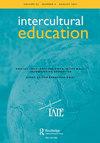教师对奥地利学校移民背景学生独立语言学习模式的看法
IF 1
Q3 EDUCATION & EDUCATIONAL RESEARCH
引用次数: 6
摘要
摘要大多数欧洲教育体系认为,为移民背景的学生提供高质量的语言和学习支持是最大的挑战,并认为单独的语言支持课程是解决这些学生面临的教育劣势的“解决方案”。奥地利最近实施了单独的语言支助方案(“德语支助班和课程 = GLSCC’)为具有初级德语技能的学生提供。越来越多的文献表明,与包容性课程相比,单独的语言学习课程会降低移民背景学生的学业成绩。本研究呈现了教师的认知(n = 1.267)。关于积极影响,教师认为GLSCC是一个个性化和差异化教学的机会。然而,许多教师报告了社会层面的负面影响,即社会排斥和他人过程。此外,研究结果表明,在教学(例如,学生错过了其他科目的内容)和组织水平(例如,缺乏足够的房间)方面存在各种缺陷,并表明迫切需要改进教师教育和培训,以教授不同的课程。本文章由计算机程序翻译,如有差异,请以英文原文为准。
Teacher’s perceptions of separate language learning models for students with immigrant background in Austrian schools
ABSTRACT The majority of European educational systems regard the provision of high-quality language and learning support for students with immigrant background as the greatest challenge and consider separate language support classes as ‘the solution’ to the educational disadvantages these students face. Austria recently implemented separate language support programmes (‘German language support classes and courses = GLSCC’) for students with beginner-level German language skills. There is a growing body of literature which indicates that separate language learning programmes result in lower academic achievement of students with immigrant background compared to inclusive programmes. This study presents teachers’ perceptions (n = 1.267) of positive or negative effects of the GLSCC in Austrian schools. With regard to positive effects, teachers view the GLSCC as an opportunity for individualised and differentiated instruction. However, many teachers reported negative effects in the social dimension which refer to social exclusion and processes of othering. Furthermore, the findings indicate a variety of deficiencies on a didactic (e.g. students miss content in other subjects) and organisational level (e.g. lack of adequate rooms) and indicate a strong need for improved teacher education and training to teach heterogeneous classes.
求助全文
通过发布文献求助,成功后即可免费获取论文全文。
去求助
来源期刊

Intercultural Education
EDUCATION & EDUCATIONAL RESEARCH-
CiteScore
2.30
自引率
8.30%
发文量
36
期刊介绍:
Intercultural Education is a global forum for the analysis of issues dealing with education in plural societies. It provides educational professionals with the knowledge and information that can assist them in contributing to the critical analysis and the implementation of intercultural education. Topics covered include: terminological issues, education and multicultural society today, intercultural communication, human rights and anti-racist education, pluralism and diversity in a democratic frame work, pluralism in post-communist and in post-colonial countries, migration and indigenous minority issues, refugee issues, language policy issues, curriculum and classroom organisation, and school development.
 求助内容:
求助内容: 应助结果提醒方式:
应助结果提醒方式:


